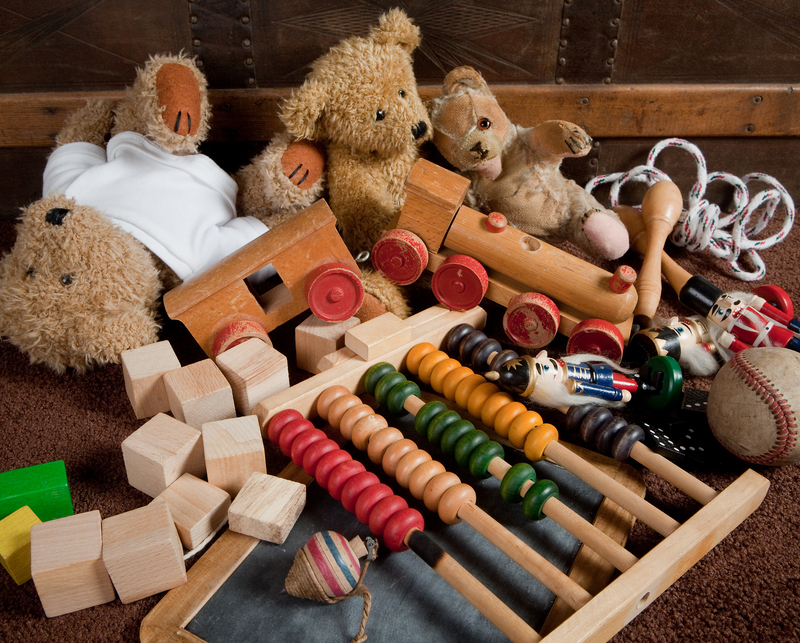Ingenious methods for a stress-free bed and mattress move
Posted on 15/06/2025
Ingenious Methods for a Stress-Free Bed and Mattress Move
Relocating your home is an exciting journey, but moving a bed and mattress can quickly turn into one of the most challenging aspects of the process. Given their size, shape, and sensitivity to damage, beds and mattresses require special care and a strategic approach. This comprehensive guide covers the most ingenious methods for a stress-free bed and mattress move, ensuring your valuable sleep systems arrive at your new home in pristine condition.

Why Moving Beds and Mattresses Smartly Matters
Many people underestimate the complexity of transporting beds and mattresses. Unlike other furniture, mattresses are bulky, often difficult to carry through narrow hallways, and can be ruined by improper handling. Bed frames, particularly those with headboards and built-in storage, can be cumbersome and prone to damage. Utilizing practical, well-thought-out methods relieves stress, prevents injury, and prolongs the life of your bedroom investment.
Risks of Improper Bed and Mattress Moves
- Physical damage such as tears, scratches, and dents
- Mold and mildew due to exposure to moisture
- Back and neck injuries from improper lifting techniques
- Lost hardware leading to assembly issues
Pre-Move Preparation: Setting the Stage for Success
1. Gather the Right Equipment
Before you even touch your bed or mattress, gather the essential supplies for safe and efficient transport:
- Mattress bags to shield against dust, moisture, and tears
- Quality moving blankets for wrapping bed frames and headboards
- Stretch wrap for added protection and securing loose parts
- Ratchet straps or tie-down ropes
- Tool kit including screwdrivers, Allen wrenches, and pliers
- Plastic baggies for storing hardware
- Furniture sliders or a dolly to avoid back strain
- Label stickers and markers
Ensuring you have the right moving tools sets the foundation for a hassle-free experience.
2. Disassemble with Precision
Many beds, especially those with large or intricate frames, need to be disassembled for an easier and safer move. Follow these steps:
- Follow manufacturer's instructions: If you kept the assembly manual, grab it now.
- Remove bedding: Strip all linens, pillows, and accessories for separate packing.
- Take apart removable parts: Detach the headboard, footboard, slats, and side rails.
- Label each piece: Use stickers or masking tape to mark where each component belongs.
- Secure screws and small parts: Place all hardware into labeled plastic bags, and tape them to the appropriate bed part.
Disassembly not only streamlines the move but also protects your bed components from accidental impacts.
Ingenious Moving Techniques for Beds and Mattresses
3. Use Mattress Moving Bags: Keep Your Mattress Fresh
Mattress bags are indispensable for keeping your sleep surface clean and undamaged. These heavy-duty plastic bags, available for all mattress sizes, guard against dirt, dust mites, and moisture during transit. Simply place the mattress inside, seal the bag (many have self-adhesive strips or zippers), and your mattress is ready for the move.
- Tip: Always lift the mattress vertically--this helps maintain its shape and prevents bending or kinking of springs or foam.
4. Leverage Furniture Sliders or a Dolly
Maneuvering a large bed frame or standing a mattress upright requires physical effort and care. Furniture sliders placed under the legs enable smooth movement, reducing friction and floor damage. For moving heavier components down a hallway or into a moving truck, use a furniture dolly--it substantially lessens your risk of back injuries.
5. Wrap and Protect Your Bed Frame
Bed frames, particularly those with delicate finishes or upholstered surfaces, are vulnerable to scratches and dings. Wrap all exposed areas with moving blankets or bubble wrap, then secure them using stretch wrap or packing tape. Pay special attention to decorative headboards and corners.
6. Secure Items During Transit
In the moving truck, proper placement is crucial:
- Load mattresses upright to save space and maintain their shape.
- Position the bed frame alongside the truck walls or sandwiched between larger pieces of furniture.
- Use ratchet straps or tie-downs to prevent sliding or shifting.
- Avoid stacking heavy items on top, which can crush the mattress or bend bed components.
Clever Tips for Hassle-Free Moving Day
7. Enlist Help or Hire Professionals
Don't go it alone! Large beds and unwieldy mattresses are best moved with help. Ask friends or family to assist, especially when navigating staircases or tight spaces. For luxury beds or valuable mattresses, consider hiring a professional moving company experienced in large-item transportation. They often bring specialized tools--like mattress sling straps--that make moving safer and more efficient.
8. Measure All Doorways and Hallways
Before starting, ensure your bed or mattress will fit through all exits at your current home and entries at your new one. Measure:
- Door widths and heights
- Hallway and corridor dimensions
- Staircase turns
- Elevator capacities, if in an apartment
If the mattress or frame won't fit, disassemble further or consider alternate routes.
9. Keep Track of Hardware and Instructions
Losing screws, bolts, or brackets during a move is a common headache. Always use labeled baggies and tape them securely to the corresponding bed part. If your bed frame is tricky to assemble, photograph each step during disassembly for a visual reference.
Unpacking and Reassembling: The Home Stretch
10. Clean Before Reassembly
When your mattress arrives at your new home, take the opportunity to clean and vacuum it. Wipe down the bed frame and allow everything to air out if conditions permit--this removes dust accumulated during the move.
11. Reassemble with Care
Reverse engineer the process: lay out all parts and hardware, consult your photos or manual, and start with the frame's base. Don't overtighten screws at first--wait until all pieces are in place before making final adjustments. Place the headboard and footboard last, then add slats or a box spring, followed by your protected mattress.
12. Check for Damage or Issues
Inspect all components for signs of accidental damage. Pay close attention to stress points on the frame and the surface of the mattress. For most issues, early detection allows for warranty claims or quick repairs.
Alternative Solutions: When Moving Is Difficult
Sometimes, moving your entire bed or mattress just isn't viable--whether due to size constraints, distance, or urban apartment access. Here are creative alternatives:
- Foldable or modular bed frames: Consider upgrading to a frame that easily disassembles for future moves.
- Mattress-in-a-box technology: Modern mattresses compressed and delivered rolled up for easy transport.
- Donate or sell locally: If the cost outweighs the benefit, donate or sell your bed and purchase new at your destination.
Frequently Asked Questions (FAQ) on Moving Beds and Mattresses
How can I move a king-size mattress by myself?
While not recommended for solo efforts, if you must, use a high-quality mattress bag with handles, a furniture dolly, and move vertically. Plan every doorway and turn in advance, and proceed slowly to avoid injury.
Can I fold a memory foam mattress for moving?
Some memory foam mattresses can be folded gently, but consult your manufacturer's instructions. Never bend innerspring or hybrid mattresses, as this can permanently damage their internal structures.
How do I store a mattress if I can't move in immediately?
Store the mattress flat in a clean, dry area inside its protective bag. Avoid placing items on top, and allow air circulation to prevent mold and odors.
Is it worth hiring professional movers for my bed and mattress?
If your bed is heavy, expensive, or unusually shaped, hiring professionals saves time, prevents damage, and reduces physical risk. They bring expertise and equipment for a seamless move.

Eco-Friendly Bed and Mattress Moving Tips
Moving sustainably is increasingly important. Here's how you can minimize environmental impact:
- Opt for reusable mattress bags and properly recycle disposable covers
- Use recycled moving blankets or linens for cushioning
- Donate old bedding or mattresses through non-profit organizations when replacing
- Recycle cardboard and plastic from packaging responsibly
Conclusion: Enjoy a Stress-Free Bed and Mattress Move
With the right planning, tools, and techniques, moving your bed and mattress can be surprisingly smooth and stress-free. By applying these ingenious methods for a safe and efficient move, you protect your investment, safeguard your health, and ensure restful nights from your very first evening in your new home. Remember: meticulous preparation before the move pays dividends when it's time to unpack and unwind.
Still feeling unsure? Don't hesitate to reach out to local or national mattress movers for advice, or consult online communities for firsthand experiences. Happy moving--and restful sleeping ahead!
Latest Posts
How to Preserve Your Freezer When It's Unplugged
Ingenious methods for a stress-free bed and mattress move
Effective Sofa Storage Techniques to Prevent Wear and Tear



